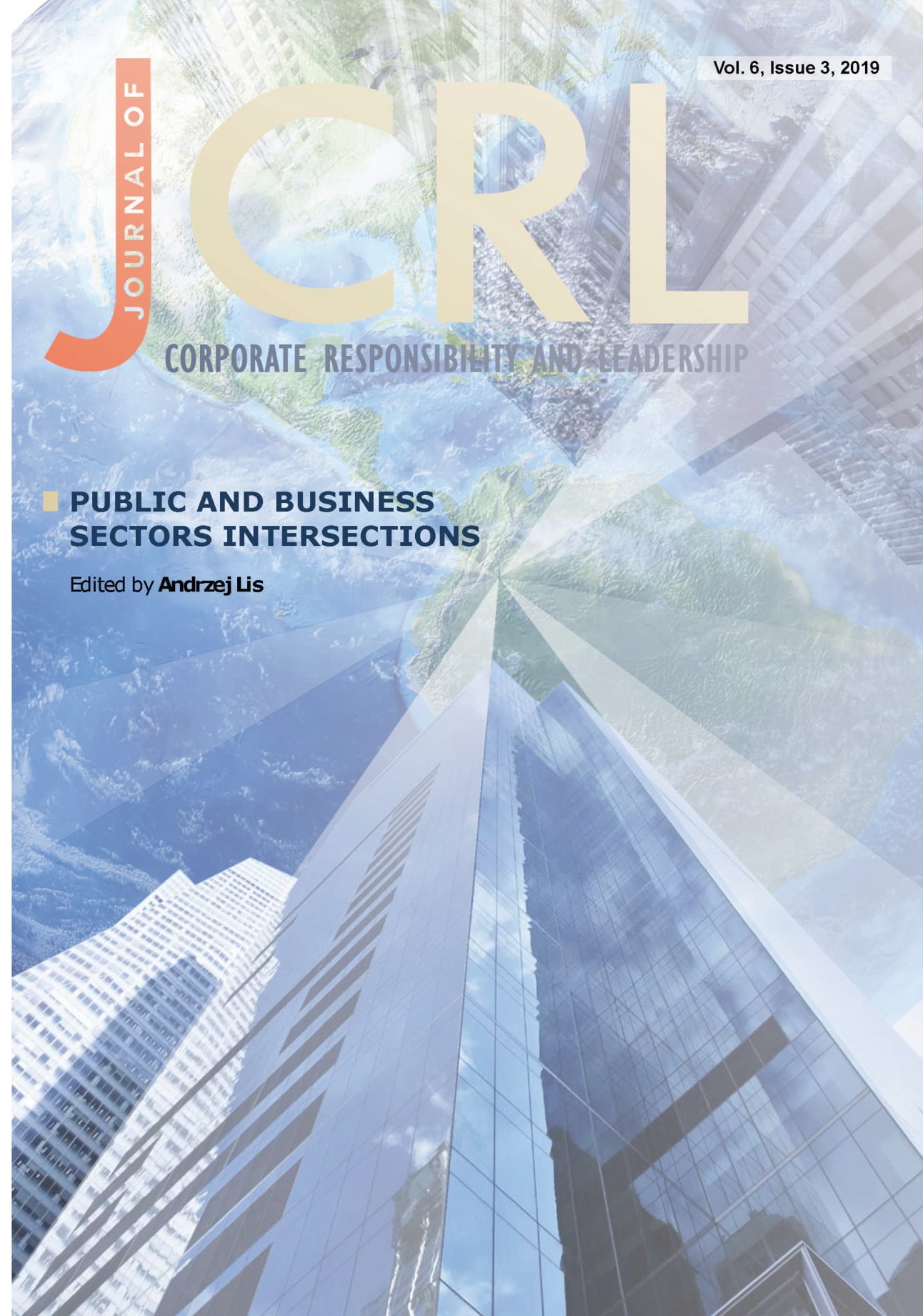The System of Public-Private Partnership in the Sphere of State Policy Implementation of Circular Economy
DOI:
https://doi.org/10.12775/JCRL.2019.010Keywords
circular economy, public policy, public administration, public-private partnershipAbstract
Purpose: The aim of research is to study the system of interaction between the state and the private sector and provide improvement recommendations in order to ensure implementation of the state policy about the circular economy.
Design/methodology/approach: The research uses scientific methods of analysis and synthesis to form a system of projects of the circular economy on the basis of public-private partnership, as well as methods of generalization and grouping to improve the components of the public administration mechanisms. Findings: The article substantiates the necessity of developing publicprivate partnership in the direction of projects for the modernization and development of the real economy sector, in the particular implementation of circular economy projects. A system of public-private partnership to ensure the implementation of the state policy of the circular economy has been built. Research and practical implications: The practical significance of scientific results lies in substantiatin g the approach to improving publicprivate partnership in general, and creating a system of public-private partnership in the circular economy in particular, which is a prerequisite for motivating businesses to implement projects, as it allows the latter to gain competitive advantage in a market economy. Originality/value: The system of realization of circular economy projects on the basis of public-private partnership is formed, including: definition of the concept of “public-private partnership in the circular economy”, the ways and forms of its realization, and the mechanisms of state management of circular economy projects on the basis of publicprivate partnership. Paper type: original research.
References
CEDR (2009). Parteneriats public-privé. Conference Euroéeenne des Directeurs des Routes. Retrieved from http://www.cedr.Fr/home/fileadmin/user_upload/
Publications/2009/f_Partenariats_public-prive_(PPP).pdf (accessed 20 June 2020).
Chou, J.S., & Pramudawardhani, D. (2015). Cross-country comparisons of key drivers, critical success factors and risk allocation for public-private partnership projects. International Journal of Project Management, 33(5), 1136–1150.
Hammami, M., Ruhashyankiko, J.-F., Yehoue, E. (2006). Determinants of Public-Private Partnerships in Infrastructure (No. 6–99). International Monetary Fund.
Retrieved from https://www.imf.org/external/pubs/ft/wp/2006/wp0699.pdf (accessed 20 June 2020).
Ishchenko, O. A. (2016). Development and implementation of sustainable local strategies in an unstable market environment. Investments: Practice and Experience, 23, 18–23.
Kiaer, A. M. (2004). Governance. Cambridge: Polity Press.
Law of Ukraine “On Production Sharing Agreements” as of 14 September, 1999. №1039-XIV. http://zakon4.rada.gov.ua/laws/show/1039–14/print1390560382134706 (accessed 20 June 2020).
Law of Ukraine “On Public-Private Partnership” as of 01 July 2010 № 2404-VI. Retrieved from http://zakon2.rada.gov.ua/laws/show/2404–17 (accessed 20 June 2020).
Mistkan, A. (2012). Possibilities of PPP in the Field of District Heating: ESCO Mechanisms. Yalta.
NISS (2012). Regarding the development of public-private partnership as a mechanism for intensifying investment activity in Ukraine: An analytical note. National Institute for Strategic Studies. Retrieved from http://www.niss.gov.ua/articles/816 (accessed 20 June 2020).
Osei-Kyei, R., & Chan, A. P. (2015). Review of studies on the critical success factors for public–private partnership (PPP) projects from 1990 to 2013. International Journal of Project Management, 33(6), 1335–1346.
Pavlyuk, K. V., & Pavlyuk S. M. (2010). The essence and role of public-private partnership in the socio-economic development of the state. Scientific Works of
KNTU. Economic Sciences, 17, 10–19.
Simak, S. V. (2014). World experience of public-private partnership organization. Scientific Works of the Black Sea State University, 223(235), 88–94.
The Concept of Public-Private Partnership Development in Ukraine for 2013–2018. Order of the Cabinet of Ministers of Ukraine as of 14 August 2013 № 739-r.
Retrieved from http://zakon2.rada.gov.ua/laws/show/739–2013-%D1%80/print1483438100682353 (accessed 20 June 2020).
Verhoest, K., Petersen, O. H., Scherrer, W., & Soecipto, R. M. (2015). How do governments support the development of public private partnerships? Measuring
and comparing PPP governmental support in 20 European countries. Transport Reviews, 35(2), 118–139.
United Nations (2008). A Practical Guide to Good Governance in Public-Private Partnerships. Geneva: United Nations.
Yescombe, E. R. (2007). Public-Private Partnerships: Principles of Policy and Finance. London: Yescombe Consulting Ltd.
Downloads
Published
How to Cite
Issue
Section
Stats
Number of views and downloads: 721
Number of citations: 0



